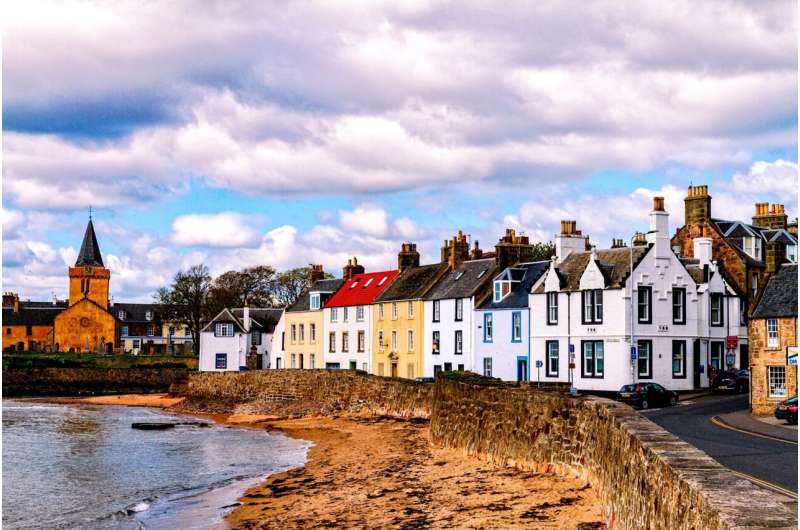Credit: Unsplash/CC0 Public Domain
People in Scotland are more likely than people in England to say that Britain is an unequal society, and are more likely to want to live in a more equal country, according to a chapter in the latest British Social Attitudes report from the National Centre for Social Research (NatCen).
But attitudes towards social inequality and social justice in Scotland do not match those of the egalitarian-minded Nordic countries.
These are the findings of new analysis, written by Dr. Chris Deeming from the department of Social Work & Social Policy at the University of Strathclyde and published by Britain's largest independent social research organization.
Dr. Deeming's analysis compares survey data collected in Scotland with similar data for England, Denmark, Finland and Norway—gathered in 2019, as part of the International Social Survey Programme (ISSP).
Unfair differences
It shows that people in Scotland are more likely to feel that differences in incomes are unfair, with nearly three in four (73%) saying the distribution of incomes in Britain is unfair, compared with around two thirds (65%) in England.
In the Nordic countries of Denmark and Norway, where income inequality is much lower, 38% and 52% respectively said income differences in their country were unfair, while in Finland 63% expressed that view.
One in four (25%) in Scotland are also more likely to believe they live in a highly unequal society, compared with 17% in England and hardly anyone in Denmark and Norway.
Meanwhile, only 11% in Scotland claim British society is broadly equal, compared with 17% in England.
People in the Nordic countries are much more likely to feel their society is broadly equal—53% in Norway, 51% in Denmark and 39% in Finland.
The analysis also suggested that people in Scotland are the most dissatisfied with government's efforts to reduce inequality, with 37% saying that government in Britain has been 'very unsuccessful' at reducing the differences between people on high incomes and those on low incomes—compared with 29% in England.
The equivalent figure is much lower in the three more equal Nordic countries—21% in Norway, 18% in Finland and 11% in Denmark.
In terms of attitudes to buying private education and healthcare, Scotland lies between England and the Nordic countries in its attitude, with almost half of people saying it is wrong for people with higher incomes to buy better education (46%) and better healthcare (42%).
In England the equivalent figures are 34% and 32% respectively.
Clear majority
In the Nordic countries however, a clear majority say it is wrong that people can buy better education—70% in Norway, 62% in Finland, and 60% in Denmark. And most people in these countries say it is wrong people can buy better healthcare—65% in Norway, 51% in Finland, and 50% in Denmark.
Dr. Chris Deeming, said:
"There is a greater concern about social justice in Scotland than in England, though perhaps the difference is of degree rather than of kind. Certainly, attitudes towards inequality north of the border do not, at present at least, match the profile of Nordic social attitudes. Even so, thanks to the higher level of inequality in Britain, people in Scotland are most dissatisfied of all with government progress tackling inequality."
Professor Sir John Curtice from Strathclyde, who is also a Senior Fellow at NatCen and authored two of the other report chapters, said: "There has long been a debate north of the border between those who claim that the values of people in Scotland are similar to those of people in England, and those who argue that Scotland is similar in outlook to the Nordic countries.
"This analysis suggests that, when it comes to attitudes to inequality at least, Scotland lies somewhere in between—and that perhaps both sides in this debate are at risk of exaggerating their case."
NatCen's British Social Attitudes (BSA) survey has been conducted annually since 1983. Each year the survey asks around 3,000 people what it's like to live in Britain and what they think about how Britain is run. Since 1983 more than 100,000 people have taken part in the survey.
Provided by University of Strathclyde, Glasgow
























